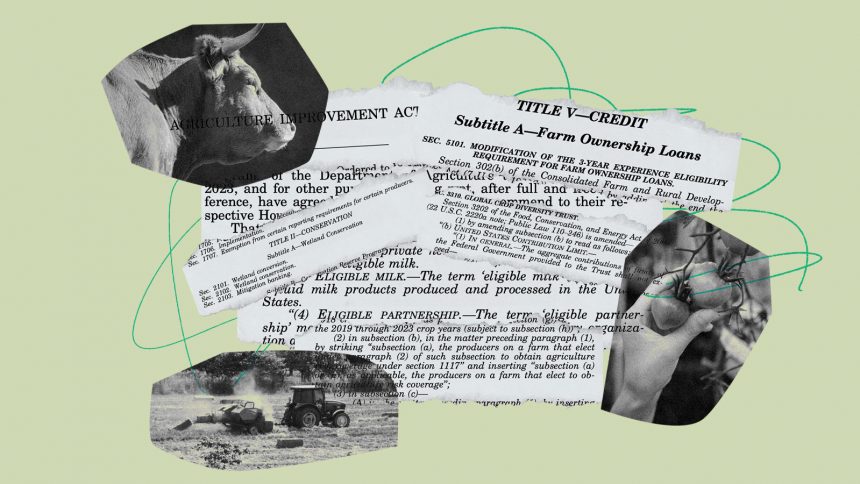Nathan Ryder and his family reside on a 10-acre farm in Golconda, Illinois, where they raise livestock and grow vegetables. Living in a food desert without a nearby grocery store and farmers market, they face challenges accessing nutritious food.
Rather than opening more supermarkets, Ryder believes expanding federal assistance programs to support local farmers like himself would be more effective in addressing food insecurity. With inflation and strained supply chains due to climate change exacerbating the issue, he sees an opportunity for small growers and producers to play a significant role in providing healthy foods to communities in need.
The 2024 farm bill presents an opportunity to address these issues, but with the current deadline approaching and lawmakers deadlocked, it seems likely that an extension of the existing law is on the horizon. This delay has significant implications as the farm bill covers a wide range of programs, from food assistance to crop subsidies and conservation measures.
The political landscape, with the upcoming election and potential changes in leadership, adds complexity to the process of passing a new farm bill. The negotiations have been complicated by partisan divides, especially concerning food assistance funding, like SNAP benefits. The Republican-controlled House Agriculture committee’s proposed cuts to SNAP have drawn criticism from Democrats, further highlighting the challenges of reaching consensus.
As climate change exacerbates food insecurity and disasters, ensuring funding for programs like the Emergency Food Assistance Program becomes crucial. These programs play a vital role in providing fresh food to communities in need and must be included in the new farm bill to address the evolving food access challenges in the face of climate change.






